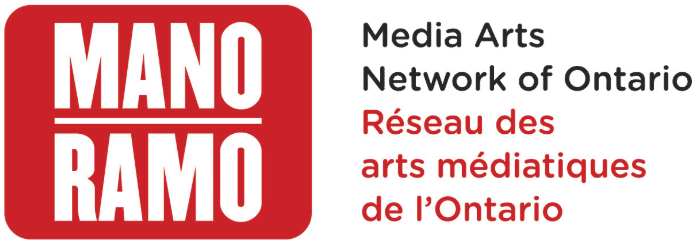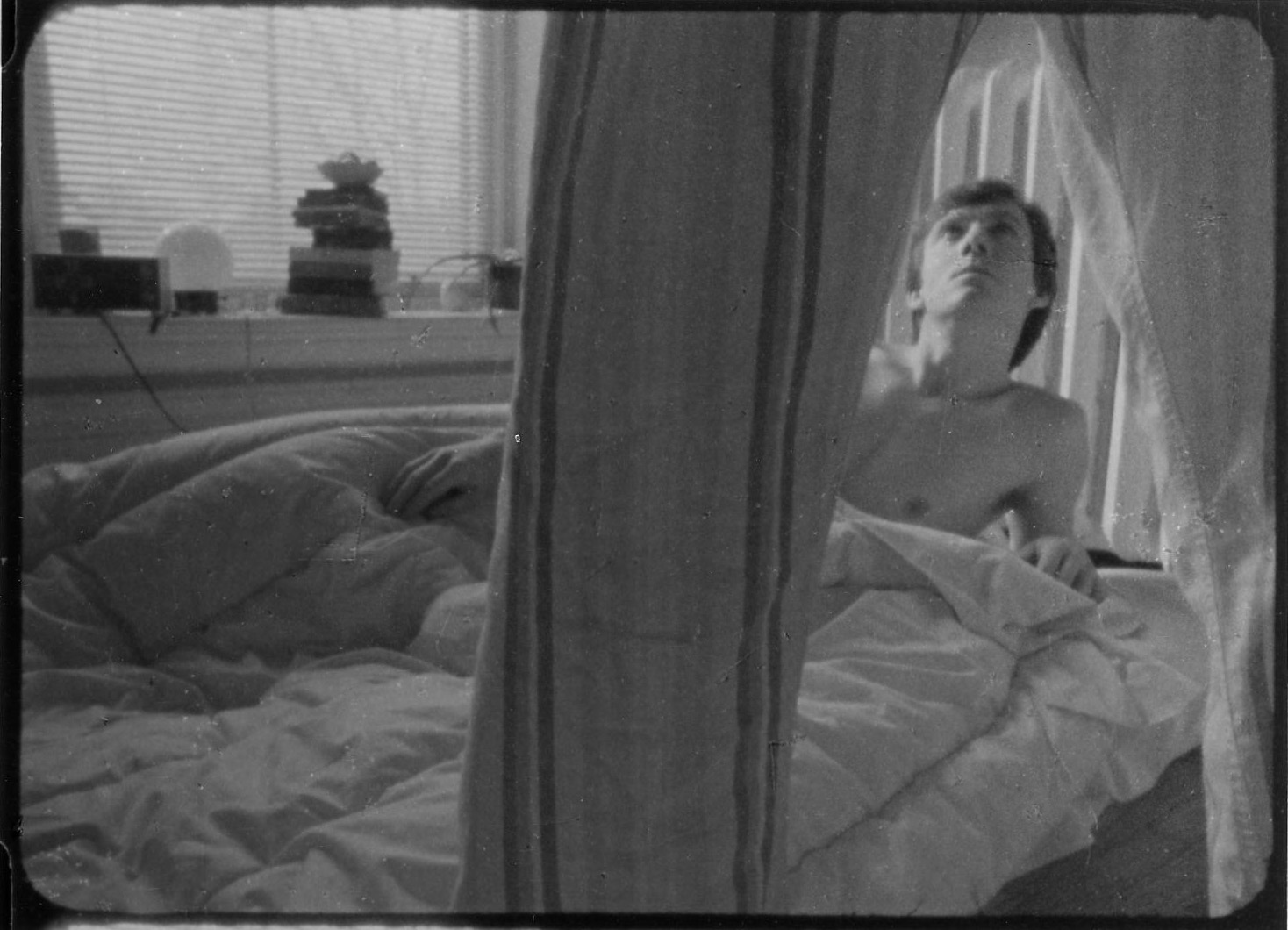Queer Canadian Films from the CFMDC 1975–85
Part of the Other Places Book Launch Series
Curated by Tess Takahashi
Saturday November 23, 8:00pm
Jackman Hall, 317 Dundas Street West, Toronto, ON
Free event
More information at: otherplaces.mano-ramo.ca
Jeremy Podeswa, David Roche Talks to You about Love (1983). 16mm. Image courtesy of CFMDC
Featuring:
Jill Johnston: October 1975–6, Kay Armatage and Lydia Wazana, 1977, 30min, Canada
David Roche Talks to You about Love, Jeremy Podeswa, 1983, 22min, Canada
Ten Cents a Dance (Parallax), Midi Onodera, 1985, 28min, Canada
There’s something for everybody in this historical show. Between 1975 and 1985, much of the queer work that found its way into the CFMDC’s collection would not have called itself that. Rather than take queer as a noun that designates the identity of either a person or a film, I understand it here as a verb form – “to queer” – a form that suggests queerness as a practice or mode of reading that attempts to shift our perception of the world. As Jose Muñoz writes regarding the power of queer futurity, “Queerness is essentially about the rejection of a here and now and an insistence on potentiality or concrete possibility for another world.” Employing experimental, narrative, and verite modes, the filmmakers in this program were often doing exactly that — shifting the ways in which we make worlds for ourselves in particular spaces, even as they comment on the social conditions that surround them.
Jill Johnston: October 1975–6 is a now little-seen cinema verité documentary that shows writer Johnston and her girlfriend engaging with women on a Toronto tour. This beautiful print opens a window onto an important historical moment in which Johnston’s numerous Village Voice essays and books (including Marmalade Me, Gullible’s Travels, Lesbian Nation, and Motherbound) were transformative cultural texts.
In David Roche Talks to You about Love, the main character addresses the audience on the topic of love as he moves around his Toronto loft. While oft-screened in the 1980s, this cinematic adaptation of a one-man show now offers a poignant snapshot into the life and loves of one young man in the culture of the time.
Ten Cents a Dance (Parallax) is a double-screen work that juxtaposes three couples as they negotiate self-containment and connection to one another in a variety of semi-private spaces: the restaurant, the public restroom, and the telephone chatline. Reflecting on the film’s title and shifting formal and sexual relationships, Onodera writes that the term “Parallax is the apparent change in position of an object resulting from the change in direction or position from which it is viewed.”
Kay Armatage has enjoyed a distinguished career as a filmmaker, academic and programmer. Her films have been sold for broadcast and shown at festivals, cinematheques and galleries around the world. She has won a number of awards and grants, including SSHRCC research grants (1995, 2003, 2007), Canada Council Senior Artist’s Grant (1992), YWCA Woman of Distinction Award (1989), Toronto Women in Film and Television Award of Merit (1988 & 2004), Clyde Gilmour Award (2004) and numerous film festival prizes and arts council grants. Armatage is professor of Cinema and Women’s Studies at the University of Toronto and a long-time programmer for the Toronto International Film Festival. Her writing on cinema has been published in Take One Magazine, Canadian Forum, Fireweed, Spirale, Atlantis and Canadian Women’s Studies.
Midi Onodera is a recipient of the 2018 Governor General’s Award for Visual and Media Arts. She is a moving image artist who has been making work for 35+ years. She has produced over 25 independent shorts ranging from film to digital video to “low end” toy camera formats. In addition to this she created a theatrical feature film, Skin Deep and 500+ online videos. Since 2006 she has produced an annual online video project which can be viewed at: www.midionodera.com.
Jeremy Podeswa is a Canadian film and television director. Podeswa has collected three Emmy nominations, and directed episodes of Boardwalk Empire, True Detective, The Walking Dead, Six Feet Under, True Blood, American Horror Story, and Game of Thrones. As a filmmaker, his 1999 film The Five Senses won Genie Awards for Best Picture and Director, and his 2007 film Fugitive Pieces opened the Toronto International Film Festival.
Tess Takahashi is a Toronto-based scholar, writer, and programmer who focuses on experimental moving image arts. She is currently working on two books, Impure Film: Medium Specificity and the North American Avant-Garde (1968–2008), which examines artists’ work with historically new media, and Magnitude, which considers artists’ work against the backdrop of Big Data. She is a member of the experimental media programming collective Ad Hoc and the editorial collective for Camera Obscura: Feminism, Culture, and Media. Takahashi’s writing has been published there as well as in Cinema Journal, Millennium Film Journal, Animation, MIRAGE, and Cinema Scope, among others.

